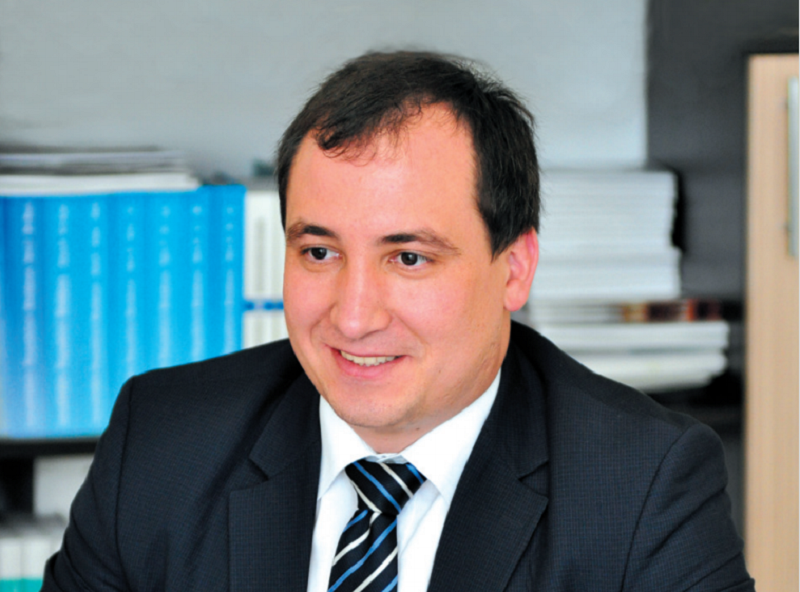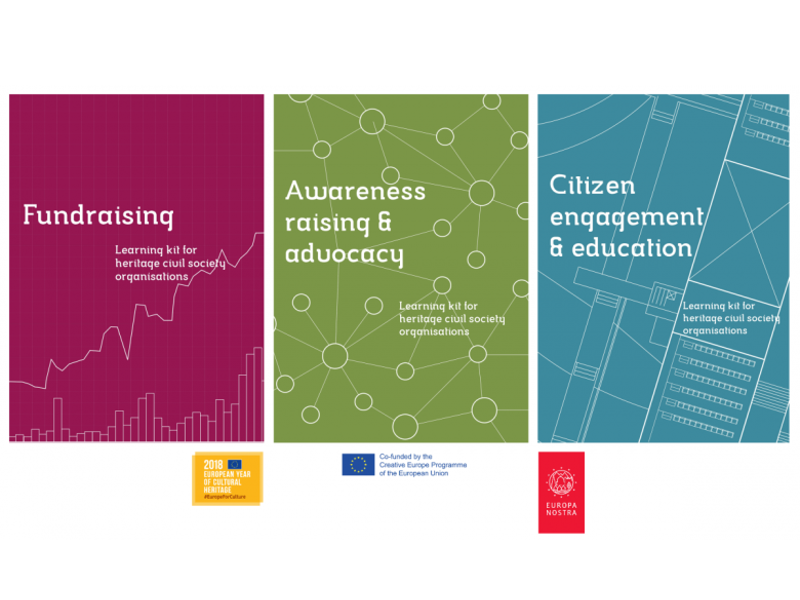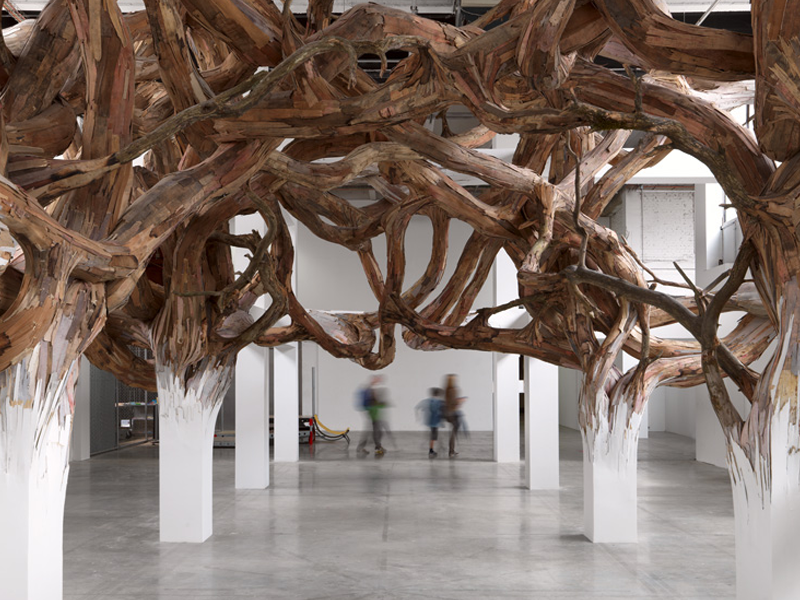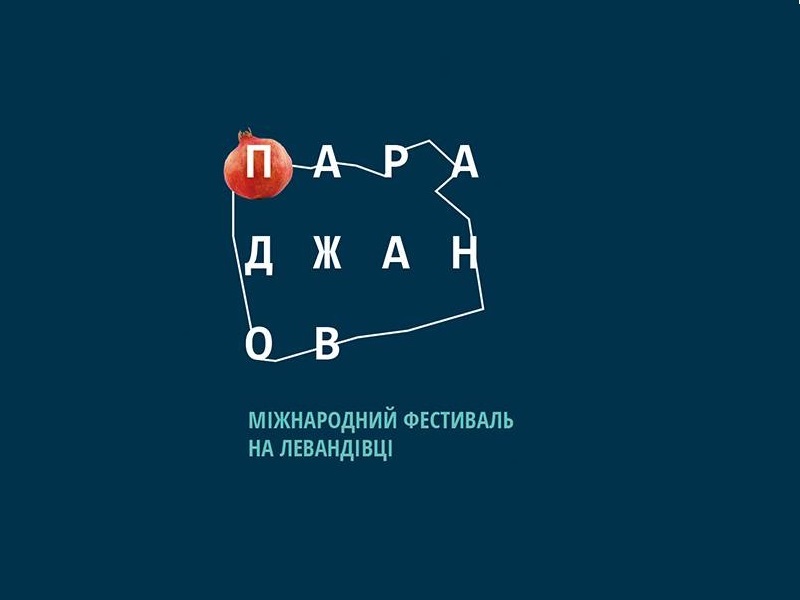
ANDREI CHISTOL: "If we want to be competitive at European level we must create the necessary conditions in order to develop creativity and innovation through a new cultural policy”.
Earlier this year, when the Minister of Culture signed the adhesion of the Republic of Moldova to "Creative Europe", it was introduced as "The most important document in the field of culture between the Republic of Moldova and the European Union". Please tell us what is this project about?
Indeed, Moldova's participation agreement in the "Creative Europe" Program is the most important project that the Ministry of Culture signed with the European Commission in the field of culture. Besides the fact that it gives us the opportunity to participate in the "Creative Europe" Program, it also opens us the way to a European market of cultural projects so that the existing cultural potential of Moldova could be developed and could become part of the great European culture. The program also includes a funding component of projects which are initiated by active organizations in the field of culture, excluding only private individuals. "Creative Europe" also finances literary translations. Publishers can apply for funds in order to translate a book from one language of reference to another European language.
Who can access these projects?
European projects can be accessed by public institutions, NGOs and private organizations. The range of projects is a very broad one, there are cooperation projects that are most requested and include exchanges; there are projects in the field of theater, film, music, visual arts, exchanges between artists and developing new skills in arts; and there is also the audience development that is so important for us. It's about audience development through different innovative actions and it is about working with attracting public in the new cultural policies. "Creative Europe" Program can finance about 50-60 percent of the project’s total budget.
What about the procedure of submitting projects?
Projects are submitted online to the European Commission. They are not received by the Ministry of Culture. The role of the Ministry of Culture is to facilitate and develop the capacities of the national institutions to enhance their skills in writing projects and project management; we focus more on the information and training aspects. Although, Moldova and Georgia participate in this program only for the first year, we focused more on the information and capacity building issues. In 2015, we have had four information sessions with the participation of our colleagues from Romania, Poland, and France. Each member country establishes an office responsible for "Creative Europe". This office provides assistance and organizes information sessions; it is a kind of a bridge between Brussels and the national organizations.
Who sets these offices?
It is the responsibility of the Ministry of Culture to create it.
Please, describe in a few words the role of such an office.
It is an office of experts that offers assistance when submitting projects. The good thing is that by the opening of project contests, offices focus more on information. After opening the call for applications, they work with each operator in order to help, for example, to choose a suitable project partner and to establish the right goals. Our objective is to help our institutions to choose a good partnership with institutions from the European Union. The projects involve a minimum of three organizations; this is the basic objective of the program – the cooperation between institutions. It is a good target to mobilize artists and to introduce outstanding cultural policies.
Artistic management is a field where we still have a lot to work, but it is essential for the development of arts and culture.
In this context, participation in the early years of the program means huge investments, because we all have the same problems - writing or designing a project. To conceive, for example, a draft of a festival requires certain skills and it's quite another thing if by organizing a festival you can develop certain skills or relationships. The primary factor for this program is sustainability; all projects must have a sustainability plan.
It's just the beginning and as I understand, we will discover other aspects of this problem along the way.
We must be realistic; we can’t get the first-year results that we count for. European practice shows that at the beginning, the new member states meet difficulties submitting the projects. Problems that appear first are due to insufficient capacities in order t to access European funds, and on the other hand - Moldova's cultural market is specific and not so well known outside.
What countries can participate in this program?
The program is attended mostly by EU countries, but also by states like Moldova, Georgia and Ukraine, that are adhering to the European integration process and aspire to become members of the European Union; and we can also mention the countries from the Western Balkans: Serbia, Montenegro, and Macedonia that are already participating in the program. In total, there are 28 EU countries plus three countries of the Eastern Partnership and five Western Balkan countries.
Is "Creative Europe" a recent project or does it have a longer history?
This program is part of the culture funding of the European Community. The European Commission sets targets of 7-8 years. "Creative Europe" derives from the "Culture and Media" former EU program and emphasizes on creativity and investment in trainings for specialists in the cultural field.
Do the cultural operators from our country express their interest for this program?
Our organizations are interested in this program because when we organized informative sessions, they were attended by many cultural actors from both the institutions subordinated to the Ministry of Culture and the local NGOs. It is gratifying that many of the ideas that were presented in these sessions have the potential to become European projects. There are different ideas about involving young people, mobility, public spaces, Media, as well as how to develop different platforms of young people from the field.
If you mention the public spaces, I consider it appropriate to discuss about a topic related to heritage. In the spring of this year, Moldova was among the 28 winners of the 2015 edition of the European Union Prize for Cultural Heritage / Europa Nostra Awards, considered the most prestigious European prize in the field of cultural heritage. What achievements did the jury took into account and what does the prize signifies for our society?
"Europa Nostra" is the second award that the Republic of Moldova gets under this program, which is one of the first European projects through which the EU supports initiatives in the field of cultural heritage. The European Union along with "Europa Nostra", which is an organization focused on problems at European level, try each year to appreciate the best European results in the field of cultural heritage. The project submitted by the Republic of Moldova was from the Moldova Inspection Agency and Restoration of Monuments and it was named "Saving the testimonies of the past in order to build the future". It reflects the EU vision on the role of cultural heritage for sustainable development. The project started as a process of raising awareness of the Moldovan society regarding the problems that exist in the field of cultural heritage. It has been demonstrated that problems arise from ignorance and lack of information about the beautiful monuments that are endangered or damaged. This award is a confirmation of the commitments that the Ministry has undertaken by the National Strategy of Culture Development where we set an objective that states that national heritage should become an integral part of national development policies, policies of national identity and sustainable development policies of the entire country. The process of awareness raising is a direct result of the actions carried on by the Ministry of Culture with the support and assistance received from the European Commission and the Council of Europe. Various major projects started with the support of the European Commission, such as the restoration of the Soroca Fortress, the restoration of the mansion of the Manuc – Bei, the restoration of other important monuments from Moldova, so that many people began to believe the value of their national cultural heritage.
Please, tell us about the COMUS project and the implementation of urban strategies in our country.
COMUS project actually started from a former initiative of the Council of Europe and the European Commission - "European Heritage Rehabilitation ". Moldova supported the continuity and necessity of this joint project because we have backlogs in cultural heritage preservation, and also at the level of human resources and legal framework. Such a project is necessary in particular in order to develop some models of best European practices. It is important that during the COMUS period to try and develop urban strategies regarding safeguarding cultural heritage. The key element in this process is how to include cultural heritage management plans in the urban plans of the city. The importance of this project it is self-evident. We will try initially in Soroca to edify a model that the in future will be developed in other historical towns.
What is this model about?
First of all, it is important that the traditional cultural heritage to become part of the development plans of the city. It would be the first important element. Second of all, under these plans we have to develop feasibility studies on how to valorize the cultural heritage economically and socially. A key element in this project, in the case of Soroca is the creation of a steering committee that includes different experts from different fields: economy, culture, education, civil society and the business sphere that will participate in the discussions and will develop together a strategy. COMUS philosophy closely resembles Ljubljana II project, which was implemented in South Eastern European countries, where the same strategy of valorization the cultural heritage and development of feasibility studies, managed to attract impressive resources in order to rehabilitate national heritage. Eloquent examples we can find in Macedonia, Montenegro, Croatia, and Albania, which can be taken as a benchmark for us. We start with Soroca. Gradually we will try to broaden the number of towns that will participate in civic activities and to develop their own management plans for interventions. We want to involve as many towns as possible in this project.
Can we talk about a dialogue and cooperation between civil society and the Ministry of Culture of the Republic of Moldova?
The Ministry of Culture is opened for such cooperation and I will bring some examples. I think that for the first time, the Action Plan of the Government includes the Ministry of Culture at the civil society chapter, where we tried to propose new elements that could involve civil society not only in decision making but also in the process of investigating some cultural policies and the development of local services. The European practices show us that civil society assumes at some level various cultural tasks. It is obviously something that occurs gradually, but there are already some precedents. I speak here about the project that Soros Foundation had several years ago with the departments on culture from the local governments, that proposed strategies for developing culture at local level, and I also can mention the project started by Mr. Veaceslav Reabcinschi, the director of the Centre for Cultural Policies who focused on local cultural centers and how to transform them into multipurpose modern centers. Considering these examples, we try to develop modern national policies in the cultural field. Thus, I can bring the example of the workshops that we organized during the European Heritage Days that focused on public spaces. This project was undertaken together with the civil society. In order to maintain and develop an efficient cooperation with civil society we will have additional assistance from the European Union. The first arguments regarding Moldova's adhesion to the "Creative Europe" were to give a new perspective for our cultural actors about taking part to the large European market in the field of culture. Besides the fact that we assist the "Creative Europe" program, we offer annually funds for NGO’s projects and we provide small grants for public associations, but, of course, they do not cover the entire financial needs even if they represent a good starting point for any project.
Who is the most interested in all these projects: cultural actors from the capital or those from other towns and from the countryside?
I do not differentiate the cultural actors from the capital form the other ones. The interest should exist from both sides, and if there exist some shortcomings at the capacity level, then we must work in order to overpass them because we really want to have local powerful and active NGOs who could also promote national events at local level. In this way, the grant program developed by the Ministry of Culture includes many projects financed at the local level. These days, we have managed with the support of the European Commission to organize some Latvian and Danish expert missions in the field of cultural decentralization policies. This is a new initiative of the Ministry of Culture that aims to clarify the issues regarding sharing responsibilities, the role that the Ministry of Culture has to play along with the local governments, and to have a new perspective over the role of each actor in the cultural processes.
Which cultural domains require for the moment more involvement?
The Moldova-European Union Association Agreement includes a chapter dedicated to culture, where we can identify two main development needs: on one hand the legislative framework and, on the other hand, the capacity development. We should invest more in people who are dealing with culture, not only in projects and festivals, but also at the competences level. One could speak of a perfect legislation, but if we lack the human resources able to implement it, the problems will not disappear, and, on the contrary, they will intensify. In this sense, we intend to create at the end of 2015 or at the beginning of 2016 an institution responsible for research and training in order to start the process of continuous formation in the field of culture. For example, NOVATECA program can be considered as a success story. Besides the fact that the program offers technical support by the network of computers with internet access, it also has a very good training component: capacity development, fundraising, searching of partnerships, business development etc. In this manner, the library widens its range of activities, available services, and public.




